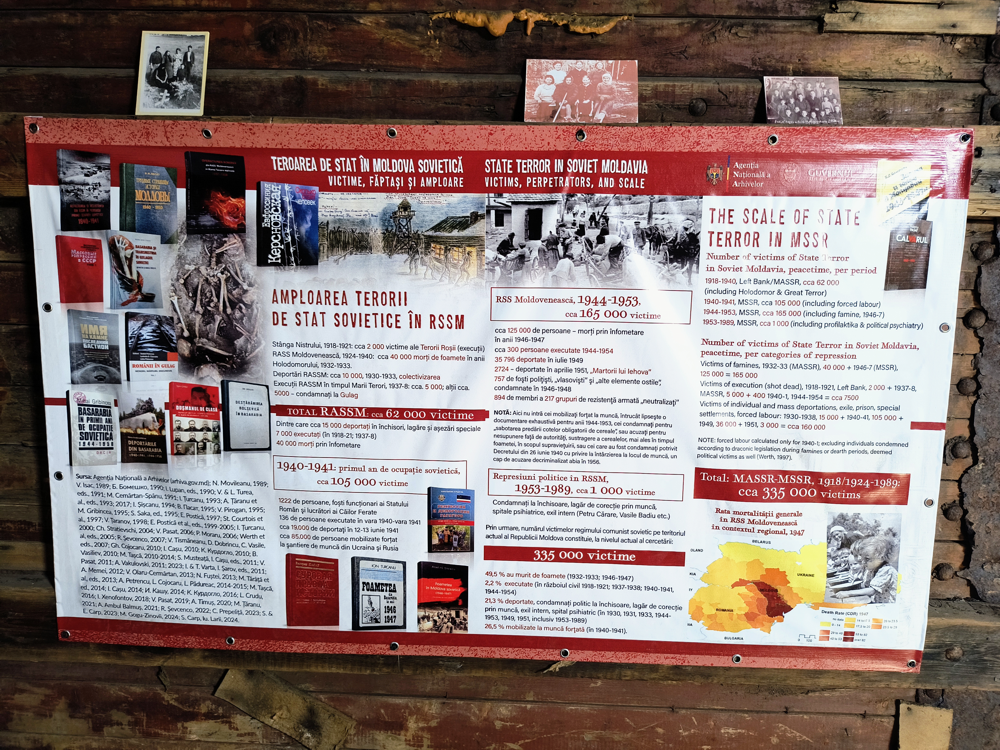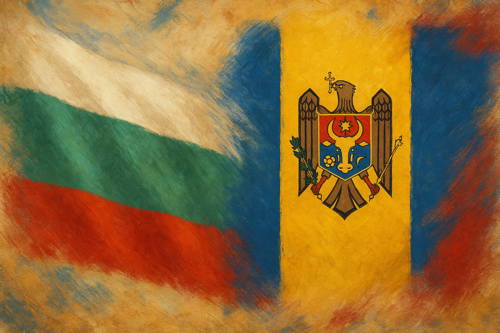
Photo taken by the author
Published on: 08.08.2025 | Author: Dr. Dimitar Keranov
Moscow's Terror over Moldova: A Dark Chapter with Echoes Today
Last month I visited Chişinău and attended an exhibition on Soviet terror. The evidence, based on archival material, was deeply disturbing.
In 1940, the Soviet Union annexed Bessarabia from Romania and merged it with part of the left bank of the Dniester already under Soviet control to form Soviet Moldova. What followed was decades of repression: forced deportations, political executions, famine, and fear.
According to the documented statistics presented in the exhibition, over 335,000 people were victims of state terror between 1918 and 1989, including those from the Moldavian ASSR before 1940. These victims were deported to Siberia and Central Asia, executed without trial, imprisoned in labor camps, or left to die in famine.
Moldovans suffered starvation, execution, imprisonment, deportation, and political “neutralization.” Their native language, Romanian, was replaced in official use with so-called “Moldovan” — Romanian written in Russian Cyrillic. Those who openly declared they spoke Romanian risked imprisonment or deportation to the Gulag. This repression also targeted minorities, including Bulgarian and Gagauz communities, as confirmed by archival records.
Entire families, including women and children, were deported as “enemies of the state.” Intellectuals, priests, and teachers disappeared in prisons. The portrayal of the USSR as a prosperous and free society is a historical distortion — the Soviet system functioned as a repressive dictatorship with no regard for human life.

Source: National Archives of Moldova (*Agenția Națională a Arhivelor*), photo taken by the author.
This history has present-day relevance. Moscow continues to challenge Moldova’s sovereignty through propaganda, disinformation, elite co-optation, cyberattacks, and other tools aimed at blocking Moldova’s EU integration and destabilizing its politics.
Russian officials have issued open threats. For example, Constantin Zatulin, special representative of the State Duma for migration and citizenship issues and first deputy chairman of the CIS Affairs Committee, declared: “The most radical way to solve the current problem is the rapid advance of the Russian army to Ukraine’s border with Transnistria and Moldova.”
The Kremlin has historically treated Moldova as a subordinate territory, its people as second-class citizens, and its culture and language as expendable and erasable — just as it now seeks to erase Ukraine.


